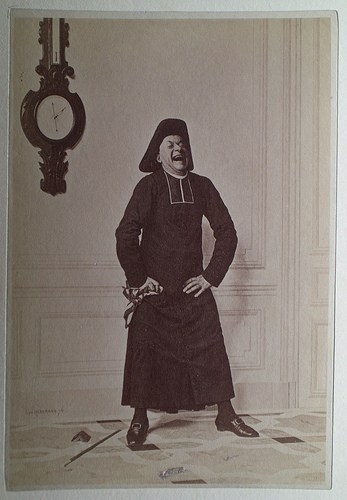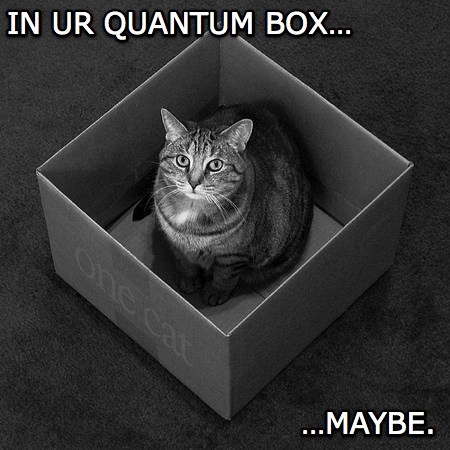A new film about urban design from the director of Helvetica and Objectified. Having recently joined the cult of Jane Jacobs (after reading her seminal work), I can’t wait to see this.
Category: Culture
Watson
Dave, who knows more than a bit about this sort of complex computer mumbo-jumbo, pointed out that Watson likely isn’t actually processing the questions semantically, but rather basing its answers on statistical relationships. Though this doesn’t significantly change the things I address in my post, its an important distinction to make.
This evening was the first airing of the long-awaited Jeopardy! match between two of the game’s most successful players and Watson, a question-parsing supercomputer developed by IBM. It’s obvious that big Blue wouldn’t have given the go ahead for an official match until they could be relatively sure of a victory (or at least holding their own), that knowledge doesn’t make watching this machine play any less impressive. At least judging from what I’ve seen, Watson seems to be pretty on-par with the best human players, if not a little bit better, though that got me wondering about how much of the computer’s ability was due to its processing, and how much benefit it got from it uniquely non-human characteristics.
Our lab does a lot of work on investigating how things like emotion, anxiety, and stress influence learning, memory, and cognition. We often do this by having study participants answer a series of general knowledge trivia questions under different experimental manipulations. Put simply, our research and that of other labs has shown that stress of being in a test environment, anxiety about getting the answers right and, and focus on negative emotion if you get an answer wrong, all contribute to a person doing significantly worse in these kind of situations than others who aren’t as stressed, worried, or sensitive to negative feedback.
Add to those relatively high-level concerns the fact that humans are easy to distract, have different reading speeds, make inconsistent muscle movements, and are subject to things like being hungry or tired. Compare these facts to a computer who never needs to eat or sleep, has only one possible goal (answering questions), and doesn’t have any feelings to be hurt or things to worry about.
Suddenly bringing a human to a trivia fight might not be the best idea.
Of course, there are many areas where humans have a leg up on our robotic competition, particularly when it comes to “creative” thinking, language use, and joking. That being said, Watson seems to be surprisingly good at the kind of word-play problems that are common on Jeopardy!, which might be a good indication of how close it is to our level of ability.
Looking at the big picture, competing on a game show is unimportant compared to the possible real-world applications of a technology like Watson. As computers become more and more able to do things historically only done by humans, an obvious question is when that all-important line is crossed and the computers are better at being us than we are.
Though there are many ways to determine where this point is, and equally as many arguments against any particular measure, lets stick with Jeopardy! for a second. The way I see it, to be better than a human at answering trivia questions, Watson only has to be as good as the best human player, at least in terms of “thinking” ability. In a game between Watson and a human champion with exactly equal semantic-processing/question-answering abilities, the computer will always win. Because Watson doesn’t care if it gets a question wrong, but Ken Jennings really doesn’t want to be beaten by a computer. Because Watson will always hit the buzzer at exactly the right time, and Joe Human might slip. For all the reasons I talked about above, Watson doesn’t have to be any smarter than a human to beat us.
Ha Ha! Old Pictures on the Internet!
If you, like myself, are a member of that select group of internet riff-raff with their fingers on the pulse of the web’s juvenile yet creative dark corners (4chan, Fark, SomethingAwful), you’ll no doubt be familiar with this image.

Simply, for lack of a better word, classic.
My best friend Rupert Scammell, while browsing through some old pictures in an antique bookstore in San Francisco, came across this image, which though likely not the source of the original meme, is strikingly similar (and arguably even better– just look at that pose!)
As one of the creators of Schrodinger’s LOLcat, and a good netizen, I feel it my duty to try and bring some meme magic to this aging sepia-tone print.
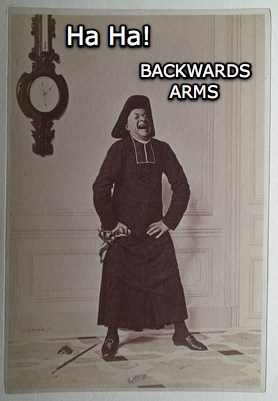
In reference to another classic.

And finally…
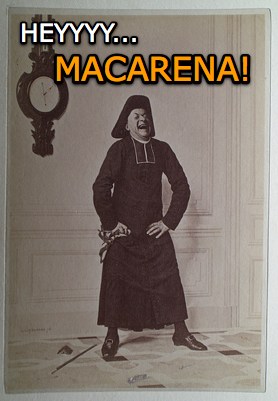
Okay, so none of them are stellar, but inspiration is a fickle mistress. I’d love to see what others come up with.
District 9
Every year at Passover, Jews thank God for delivering them from slavery in Egypt. As part of the seder ceremony, songs are sung, one of which is called Dayenu. The song recounts all the miracles God performed for our wayward ancestors, one after another. The chorus, “Dayenu”, roughly translates as “it would have been enough.” Had God only sent the plagues but not parted the sea, it would have been enough. Had he sent the plagues, parted the sea, but not sent mana from the sky to feed the people, it would have been enough. You get the idea.

Though I never really bought into the whole religion thing, I couldn’t help but remember Dayenu as I walked out of Neill Blomkamp’s much anticipated District 9.
If it had just introduced some novel ideas into the already colossal “alien v.s human” sci-fi canon, it would have still been well worth the price of admission.
Had it not addressed important political issues at the forefront of our social consciousness– race relations, war profiteering, torture– it would have nonetheless been very good.
Even lacking Blomkamp’s incredible talent for incorporating CG footage and special effects with live action, District 9 would still be the best mainstream film released this summer.
If absent a touching and thought provoking story, and or a truly human tragic hero, the film would have easily become one of my favorites in any genre.
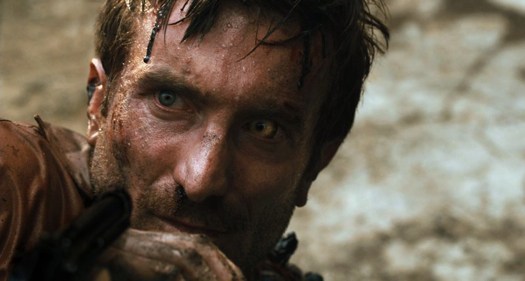
As with so many things, the whole is greater than the sum of its parts, and the parts of District 9 add up to a simply phenomenal movie. Shortcomings in the storytelling are easily forgiven by the original and well thought-out plot, as rich in emotion and irony as any Greek epic (which, in a sense, the story is modeled after). The action and battle scenes rank right up there with those found in Black Hawk Down in terms of intensity, while still keeping enough detachment and fictiveness to allow for some truly awesome alien technology. So well done were the SFX that one quickly forgets the footage they are watching has been altered at all. Above all else, this is a smart film. So rarely these days are audiences allowed to think for themselves– to decide on their own who is right and who is wrong– without being beaten over the head with crudely constructed morality.
As icing on an already delicious cake, Blomkamp’s treatment of the South African setting is incredibly well done, and captures a great deal of nuanced behavior (especially in the flawlessly acted character of Wikus) that could so easily have been left out (but which leaves wistful ex-pats like myself cheering).
When I first saw Alive in Joburg, the digital short on which District 9 is based, I knew that whoever made it would go on to make some very special things, and Blomkamp does not disappoint. I can’t wait to see what he comes up with next (HALO anyone?).
Denver Trip, ROFLcon, and LOLcat Book
While its great living in the big city, it’s certainly nice to get out of town every now and then– away from all the hustle and bustle. As such, I’m spending the last full week of April relaxing back home in Denver. It would be great to see the Denver geek crowd again, so hit me up if you’d like to catch-up.
More importantly however, I’ll be making a slight detour to Cambridge for ROFLcon before heading back to NYC. ROFLcon, if you haven’t heard, is a gathering of everything awesome and fantastic about the internets. Tron guy, Group X, and Leeroy Jenkins are just a few of the internet celebrities attending, and panels will include “Pwning for the Good of Mankind” and “Incubating the Mind Virus.”
Silliness aside, this looks like its going to be an amazing gathering of minds to discuss just what makes the internet such a special place.
Finally, Gotham Books has contacted Kevin and I about having Shcrodinger’s LOLcat included in the upcoming I Can Haz Cheezburger book. More details as soon as we get them.
London 2012 Brand Backlash

It’s not often that design gets the level of press coverage that it truly deserves, and when it does, it’s usually negative– as is the case with the hub-bub surrounding the recently announced identity for the 2012 London Olympics. Almost 50,000 people have signed an online petition to have the logo– designed by Wolf Ollins at a cost of $800,000– changed, and there have been reports of animated versions of it causing epileptic seizures.
Personally, I think the brand is atrocious. Not only does it not evoke ‘London,’ but it also fails to convey anything but clashing colors and meaningless abstraction. But I’m just a lowly design student, so let’s see what other people are saying.
Love it:
Coudal Partners – Just like you, our first reaction was shock. But we talked about it all morning. By 3pm, we decided we love it. And here are ten reasons why you should, too:
The Serif – It’s got that Marmite factor. But we find that even with things that people start off disliking, they get used to them.
& …it’s incredibly noticable, brave and confrontational.
Hate it:
Seth Godin – A great logo doesn’t mean anything until the brand makes it worth something.
Design Observer – The London 2012 logo is a solid gold stinker.
Ambivalent:
Speak Up – I believe, despite any ensuing boo’s, that this is some of the most innovative and daring identity work we have seen in this new millennium, and the lack of cheesy and imagination-impairing gradients gives me hope that identity work can still be resurrected on a larger scale.
It was only when discussing the image with my mother was I able to glean some meaning from the spilled tangrams.
At least this shows that there was some reasoning behind the brand other than abstract PR nonsense.
Behind the LOLcat: Schrodinger’s LOLcat
A few days ago, I was listening to a podcast lecture on the basics of quantum cryptography when I got into a discussion about the nitty-gritty of the subject with my friend Justin.
…
dantekgeek: exponential on a regular computer, but reasonable time on a quantum computer, right?
justinwick: Right right
justinwick: assuming ur in ur quantum computerz, giving them enuff qbitz
dantekgeek: hahahaha
justinwick: 🙂
justinwick: schrodinger’s lolcat
…
I quickly searched flickr for a suitable image, and came across Kevin Steele’s fantastic “a box for every cat.” Some quick work in Skitch, and Schrodinger’s lolcat was born.
I figured my circle of friends would get a kick out of it, and that maybe it would be picked up by BoingBoing, but could never have predicted the amount of exposure my little creation has received.
Others had the idea long before I came across it, but for whatever reason, it was my LOLcat which gets all the glory. This puts me in kind of a weird position; On one hand, I don’t want to be seen as taking credit for an idea that was already floating in the ether, but the fact remains that we did create this thing without knowledge of prior-art, and I think that should count for something.
I want to make clear that I couldn’t have made this thing on my own, and it was only through the spirit of the meme, my conversation with Justin, and Kevin’s photo that this thing came to fruition. I am but one small robot on the LOLcat assembly line.
I’m in talks with Justin and Kevin about possibly printing up some t-shirts, but nothing is guaranteed– we might choose to just let this thing stay online, where it was born, and where it belongs.
Basshunter
Despite his shoddy pirate technique and library and content library management, my younger brother really does have quite good taste in music– a fact which I often fail to acknowledge due to sheer laziness. He introduced me to Pendulum a few weeks back, and this evening assisted my discovery of Basshunter.
I listen to a lot of great music, and I’m sure you readers do as well– so what makes this Basshunter fellow post-worthy?
Geek cred.
Not only is his music some excellent upbeat eurodance, but the themes are about as nerdy as you can get. His first international hit, Boten Anna, tells a tale of mistaken identity involving an IRC bot, and his second single is a sort of techno tribute to Warcraft 3 mod “Defense of the Ancients” and voice-conferencing application Ventrillo– complete with sound samples from the game mixed in.
For fans of dance and geeks alike, Basshunter is definitely worth checking out. Below is the video for Vi sitter i Ventrilo och spelar DotA
Student Arrested for Making Videogame Map of School
Student Arrested for Making Videogame Map of School. I’ve tried to do the same, but I’m no good at 3D modeling.
AACS to Go After Hex Posters
The BBC is reporting that AACS, the company behind the HD-DVD copy protection, has vowed to track down and prosecute any and all bloggers who posted 09-F9-11-02-9D-74-E3-5B-D8-41-56-C5-63-56-88-C0.
Slashdot, as always, has a fantastic analysis of this story in the comments.
AACS, come and get me.
